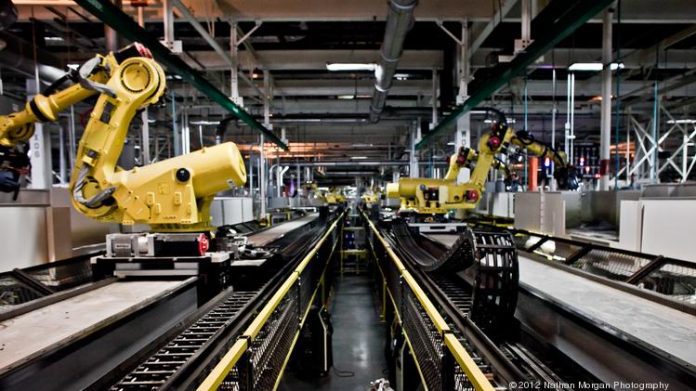Lean manufacturing aims to maximize productive and minimize waste within a manufacturing operation
Lean manufacturing is a production method aimed primarily at reducing times within the production system as well as response times from suppliers and to customers. The main objective of lean manufacturing is to maximize productivity while simultaneously minimizing waste within a manufacturing operation.
Manufacturers employ this production scheme with the main aim of increasing efficiency. By receiving goods only as they need them for the production process, it reduces inventory costs and waste, and increases productivity and profit. The concept of lean manufacturing requires producers to forecast demand accurately, as the benefits of this production method can be nullified by minor delays in the supply chain.
The lean manufacturing concept derives from Toyota’s 1930 operating model Toyota Production System (TPS). Lean manufacturing is based on the concept of continuous and incremental improvements on product and process while eliminating redundant activities. This scheme stipulates that the value of adding activities are simply only those things the customer is willing to pay for, while the rest is waste, and should be eliminated, simplified, reduced, or integrated.
Lean manufacturing reduces lead times and operating costs
Some of the key benefits of lean manufacturing include reduced lead times and operating costs and improved product quality.
According to U.K.-based research and technology organization TWI, the types of waste include processes, activities, products or services that require time, money or skills but do not create value for the customer. These can cover underused talent, excess inventories or ineffective or wasteful processes and procedures.
TWI states that there are four key benefits to lean manufacturing:
-Eliminate Waste: Waste is a negative factor for cost, deadlines and resources. It provides no value to products or services.
-Improve Quality: Improved quality allows companies to stay competitive and meet the changing needs and wants of customers.
-Reducing Costs: Overproduction or having more materials than is required creates storage costs, which can be reduced through better processes and materials management.
-Reducing Time: Wasting time with inefficient working practices is a waste of money too, while more efficient practices create shorter lead times and allow for goods and services to be delivered faster.
The Toyota Production System originally detailed seven wastes that don’t provide value to the customer. These wastes were: Unnecessary transportation, excess inventory, unnecessary movement of people, equipment or machinery, waiting – either people or idle equipment, over-production of a product, over-processing or adding unnecessary features to a product, and defects that require costly correction.
How 5G technology could enable lean manufacturing processes?
5G technology could play a role in enabling lean manufacturing processes, because 5G networks offer manufacturers the possibility to build smart factories and truly take advantage of technologies such as automation, artificial intelligence, augmented reality for troubleshooting, and the Internet of Things (IoT). The low latency, high reliability, and increased speed of 5G networks are essential to support emerging technologies and their novel applications in this field, such as process automation, remote monitoring, and collaborative robots, among others.
5G technology will also allow for higher flexibility, lower cost, and shorter lead times for factory floor production reconfiguration, layout changes, and alterations, which will result in significant improvements in terms of production and could be key enablers of lean manufacturing.
For more 5G manufacturing content, check out the following:
- What is 5G manufacturing and what does it mean for productivity?
- Top 5 5G manufacturing use cases
- Three 5G manufacturing case studies: Audi, Haier, Bosch
- What’s the role of a digital twin in smart manufacturing?
- 5G manufacturing use case spotlight: Automated guided vehicles
- 5G manufacturing use case spotlight: Real-time video analytic
- How to improve Overall Equipment Effectiveness with 5G
- 5G manufacturing use case spotlight: Additive manufacturing

